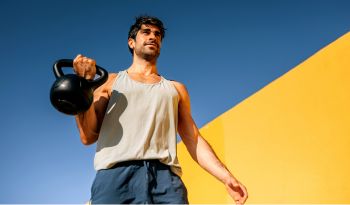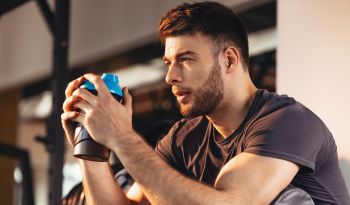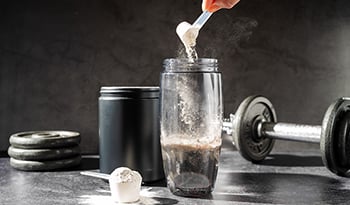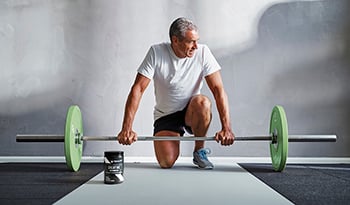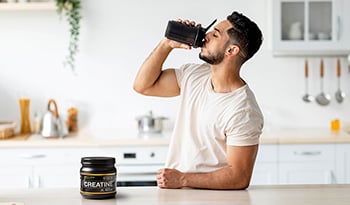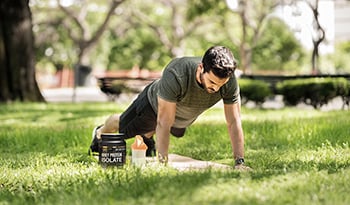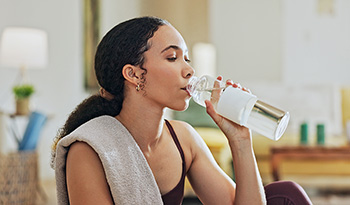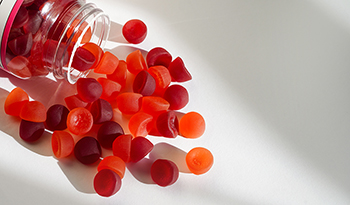How Does Being Dehydrated Affect Your Workout?
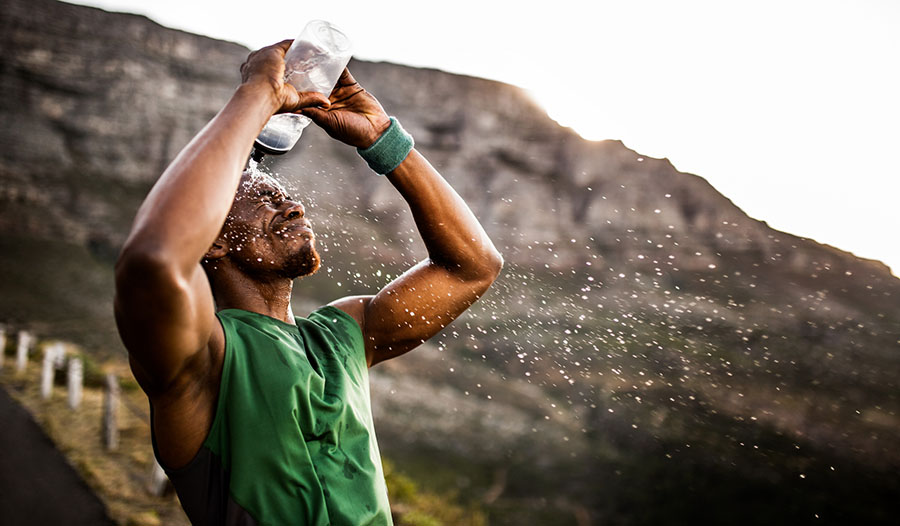
In the gym, few things can wreak as much havoc on performance as being dehydrated. It’s no secret their the body needs water to function properly on a daily basis, and in the gym, this is especially true. Dehydration can impact muscle contraction, focus, and cause lethargy and fatigue.
Dehydration levels can vary greatly from one fitness enthusiast to another, so it’s important to understand your body’s signs of dehydration. In this article, we’ll discuss how dehydration can affect the body and workout performance, along with tips on how to stay hydrated.
Symptoms of Dehydration
Before diving into the specifics of how dehydration can impact exercise, it’s a good idea to first define dehydration. Everyone’s body has a natural, homeostatic level of fluid that it wants to maintain at all times. Dehydration can simply be defined as any loss of fluid from this normal or optimal level.
Dehydration levels can present as mild, moderate or severe. The more dehydrated you are, the worse the symptoms. It’s important to note that no two levels of dehydration will look the same.
If you’re unsure about your hydration levels, you can perform a self-check to find out if you’re in need of fluids. Some common symptoms and effects of dehydration include:
- Dry mouth
- Lightheadedness
- Weakness
- Fatigue
- Excessive thirst
- Dark urine
- Impaired cognition
- Muscle cramps
- Post-workout soreness
It’s important to remember that if you’re dehydrated, not every sign will always be present. There are multiple factors that play a role in daily fluid balance, and they vary from person to person. For example, things like diet, exercise, medications and climate can all play a role in hydration levels.
How Dehydration Can Impact Gym Performance
In the gym and in workout settings, careful attention needs to be paid to hydration levels. As we sweat, we lose minerals and electrolytes, which play a vital role in the body’s proper functioning. For example, cognitive performance has been shown to decrease with as little as 2% body water loss.
The body’s preferred energy source is adenosine triphosphate (ATP). During exercise, normal energy demands increase, which creates a higher need for ATP for optimal function. To match these energy demands, the body must convert nutrients consumed from food to ATP by the means of multiple processes. Water plays a vital role in this cycle, and without it, performance can tank.
Tips for Staying Hydrated
Generally speaking, dehydration usually occurs when there’s been an accumulation of time or activities that have put the body in a negative fluid balance. The best advice for preventing dehydration is to simply stay hydrated throughout the day. There are multiple ways to support hydration levels.
- Maintain daily hydration: Drink water throughout the day. For most active individuals, there’s no golden rule for how much water is needed on a daily basis. An easy way to remain hydrated is to simply drink when you feel even the slightest tinge of thirst. Have trouble remembering to drink throughout the day? Try bringing a reusable water bottle with you.
- Consume electrolytes after a tough workout: Aim to consume fluid sources with electrolytes added. Electrolytes ensure you’re replenishing resources you might have used during a workout. The most important electrolytes to look for in supplements include sodium, potassium, magnesium, calcium, chloride and phosphorus.
- Drink more on hot days: On warm-weather days when you spend a lot of outside, you may find yourself sweating more than normal. Passive sweating can be an easy way to accidentally become dehydrated without realizing it. Increase fluid intake accordingly and aim for electrolyte-fueled resources. An easy way to ensure you’re replenishing vital electrolytes is to bring along portable electrolyte tabs or packets.
- Pay attention to all your hydration sources: Outside of diuretics, like caffeinated drinks and alcohol, nearly every fluid source consumed throughout the day can play a role in providing the body with hydration. Not a fan of water? Try consuming recovery shakes, juices, and even fruit to promote optimal hydration levels.
The above tips are easy to put in action and can be performed every single day. The goal should not be to simply drink more, but to drink intuitively to match the body’s overall needs. If you are active regularly and find yourself sweating a lot, then your electrolyte and fluid requirements will be much higher than that of others. When in doubt, drink something every couple of hours, and make sure you’re consuming even more after a tough workout.
Hydration is more complex than simply drinking eight glasses of water a day. While that advice is a good general recommendation for the population, it doesn’t account for the body’s individual needs and the impact of lifestyle factors like exercise. If you’re sweating regularly and want to perform optimally, then hydration should rank higher on your list of daily requirements.
References:
- https://www.ncbi.nlm.nih.gov/pmc/articles/PMC4207053/
DISCLAIMER:This Wellness Hub does not intend to provide diagnosis...















































































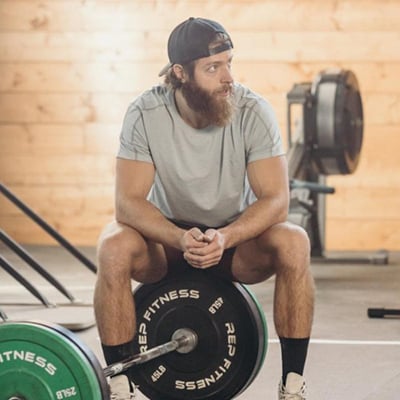
 Table of Contents
Table of Contents



